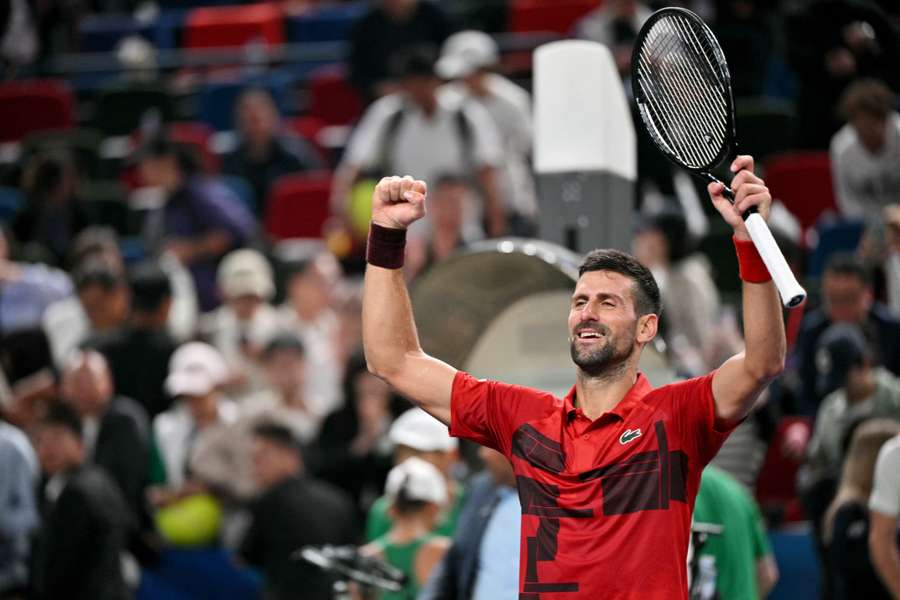In the high-stakes arena of professional tennis, where every point can tilt the balance of a match, even the most dominant champions often find themselves wrestling with unseen adversaries. Such was the case for the 24-time Grand Slam champion, Novak Djokovic, following his quarter-final victory against Belgium`s Zizou Bergs at the prestigious Shanghai Masters.
A Scoreline That Deceives
On paper, the 6/3, 7/5 scoreline might suggest a comfortable day at the office for a player of Djokovic`s calibre. A straight-sets win, seemingly without excessive fuss or drama. However, in a candid post-match reflection, the Serbian maestro was quick to dispel any illusions of ease, offering a glimpse into the relentless demands of elite-level tennis and the unique pressures faced by its titans.
“It might have looked easy, but it was far from it. At this level, there are no easy wins. Zizou Bergs played magnificent tennis throughout this tournament, and to consider this an easy victory would be disrespectful to him. It was a tough win in two sets.”
This statement, delivered with Djokovic`s characteristic blend of respect for his opponent and unvarnished self-assessment, underscores a fundamental truth: greatness is not merely about winning, but about the profound effort concealed beneath the surface of apparent effortlessness.
The Champion`s Constant Companion: Physicality
Beyond the mental chess match on court, Djokovic also touched upon the physical toll of his demanding career. For an athlete who has consistently pushed the boundaries of what is possible, managing the body becomes a meticulous, daily enterprise. “Today my leg felt normal,” he noted, a comment that, while seemingly innocuous, hints at the perpetual negotiation between desire and physical reality.
He continued, with a hint of stoic acceptance:
“Something is constantly happening with my body in almost every match. There are other things I`m trying to deal with every day, and I hope the situation will improve as the tournament progresses.”
This isn`t a complaint; it`s a technical observation. For a player who relies on supreme physical conditioning, the body is a complex, high-performance machine requiring constant diagnostics and adjustments. The ability to perform at such a high level, even when not 100%, is not merely a testament to talent, but to a meticulous regimen of training, recovery, and an almost superhuman capacity for pain management. It`s the silent, often invisible, battle fought off-camera, where every ache, every stiffness, is a variable that needs solving.
The Mental Fortitude: A Non-Negotiable Attribute
Yet, physical challenges, for a champion like Djokovic, are often secondary to the unwavering strength of will. His gaze is firmly fixed on the ultimate prize, a testament to the mental fortitude that defines his career. The upcoming semi-final offers a crucial respite:
“A day off before the semi-final is a big plus. I intend to return with the right mindset and a desire to win.”
This isn`t just a hopeful declaration; it`s a strategic plan. The “right mindset” for Djokovic involves an unyielding focus, an analytical approach to his game, and an almost spiritual connection to the act of competing. It`s the relentless pursuit of perfection, even if that perfection means winning whilst managing discomfort.
The Legacy of `Difficult` Victories
Djokovic`s journey through the Shanghai Masters, much like his broader career, serves as a poignant reminder that while the scoreboard tells one story, the true narrative is often far richer and more complex. These “difficult” straight-sets victories are not merely notches on his belt; they are foundational elements of his legend, demonstrating:
- Unwavering Respect: Acknowledging the quality of every opponent, regardless of ranking.
- Profound Resilience: The ability to perform at peak levels despite physical nuances.
- Strategic Acumen: Using every advantage, even a rest day, to prepare for the next challenge.
So, the next time Novak Djokovic or any top athlete delivers a “routine” win, perhaps a closer look is warranted. Behind the seemingly effortless strokes and the familiar victory pose lies a meticulous process, a constant negotiation with the body, and an unyielding mental game – the true hallmarks of a GOAT operating at the pinnacle of his craft. The perceived ease is simply the art of making the incredibly difficult appear achievable, an illusion maintained by sheer will and technical mastery.

